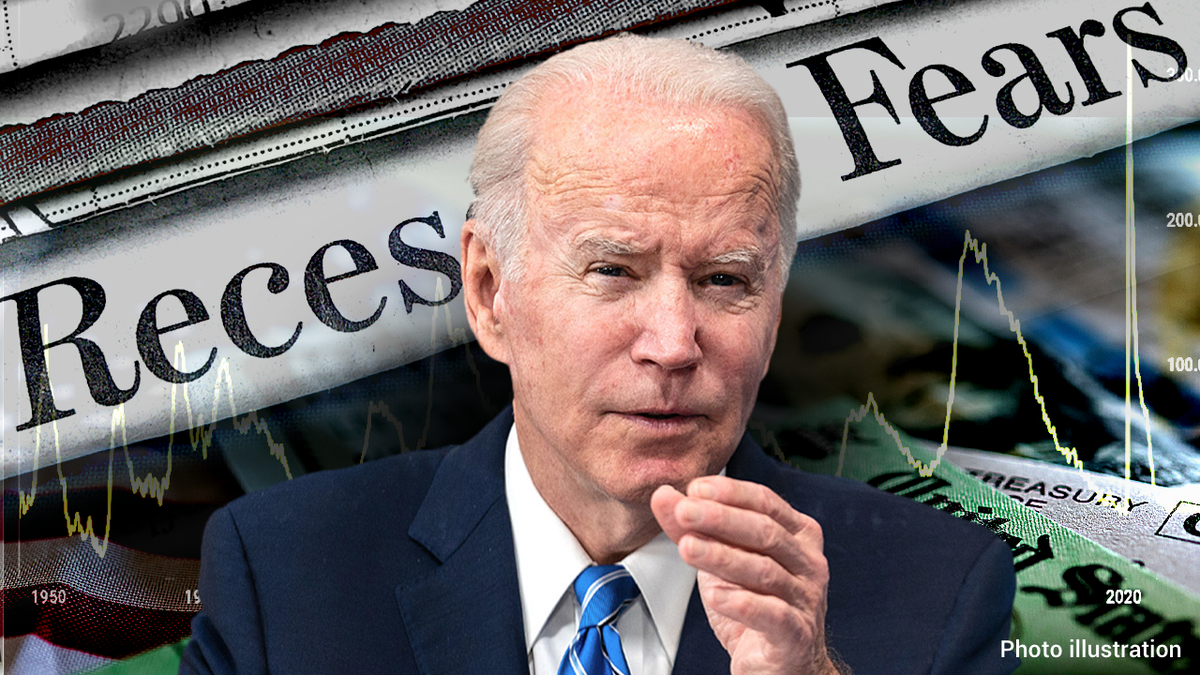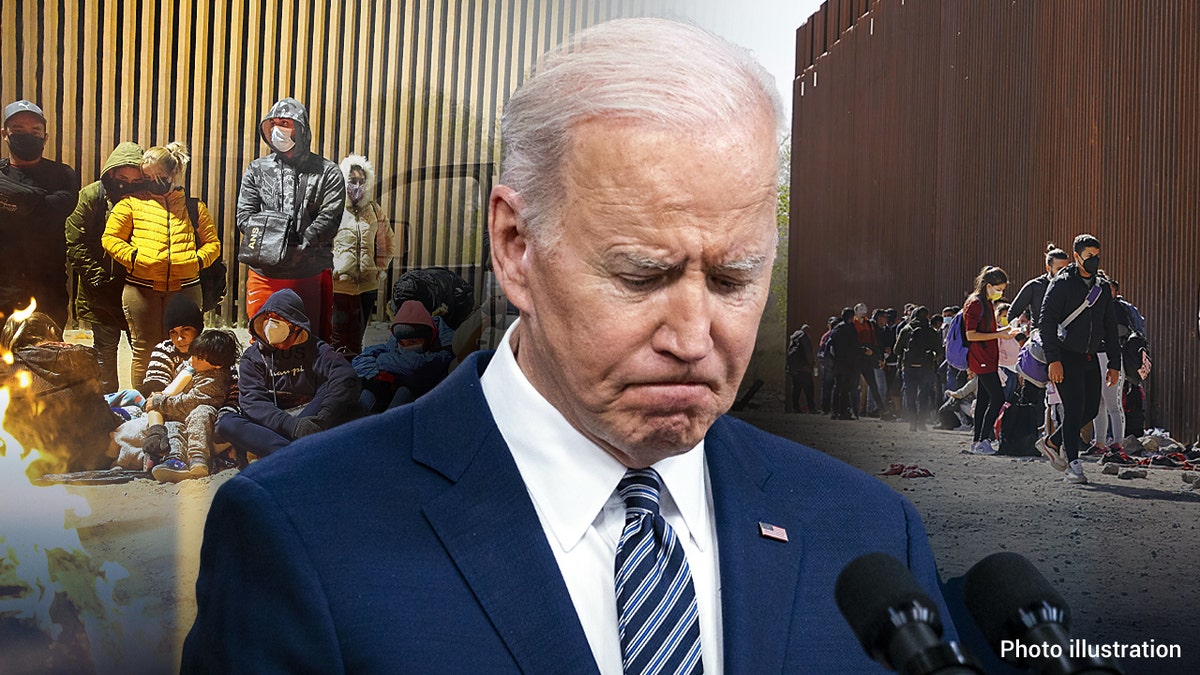Tucker Carlson: If this isn't a recession, what is it?
Fox News host Tucker Carlson rips President Biden for denying the United States is in a recession despite what economists say on 'Tucker Carlson Tonight.'
Washington Post columnist Megan McArdle dismissed the semantics debate over whether the U.S. was officially in a recession and warned Democrats that such "word churn" about the state of the economy was not an effective political strategy.
In her Friday piece, titled, "Enough with the ‘is this a recession?’ blather," McArdle began by asking, "Are we in a recession? Does it even matter?" She noted "that a preliminary Bureau of Economic Analysis report released Thursday shows that the economy contracted at an annualized pace of 0.9 percent in the second quarter, following a decrease of 1.6 percent in the first quarter."
Two consecutive quarters of negative gross domestic product (GDP) growth has traditionally been the technical definition of a recession.
McArdle pointed out, "Thus, the pundit class launched into a quarrel over whether this really, truly constitutes a recession. As with everything else these days, the debate (mostly) split along partisan lines and became so fierce that Wikipedia had to close its entry on recessions to edits."

President Biden has continued to insist the U.S. is not in a recession. (Getty Images)
POLITICO, CNN, MSNBC JOURNALISTS BACK OFF RECESSION DEFINITION THEY PREVIOUSLY ESPOUSED
She defined both sides of the argument, "The right insists that, yes, obviously we’re in a recession. What part of ‘two quarters of negative GDP growth’ don’t you understand? The left points out that actually, the official U.S. metric relies on a considerably more complicated cocktail of indicators."
While McArdle suggested the spin coming from Democrats and the Biden White House was "not unreasonable," she also admitted "it is probably unreasonable to spend much time arguing about" the definition of a recession.
"The Biden administration has spent a lot of energy trying to manage perceptions of the economy," the columnist observed. As an example, she reminded readers, "Remember when inflation was going to be ‘temporary?'"
McArdle examined how those talking points from the Biden administration didn’t protect President Biden from unpopularity: "Insisting that inflation was just a blip didn’t stop consumers from noticing that prices were rising. Nor did it protect Biden’s approval ratings, which dived even as the administration continued to insist that everything was fine."

Graphic showing inflationary measurements (istock)
"In fairness, some would argue that when it comes to the economy, perceptions can become reality," she acknowledged. "Thus, the theory goes, if you can prevent the media from talking down the economy, we might all be better off."
However, McArdle threw cold water on that notion: "You can’t message people out of thinking their economic circumstances have gotten worse — or out of worrying that this portends ill for the future." She concluded, "So all the spin efforts are likely to come to naught."
The columnist added "it’s emblematic of a dangerous tendency on the left to believe they can control reality by controlling the words we use to describe it." She then elaborated on "the left’s full-time obsession" with semantics.
"It is the left that has put us on a never-ending euphemism treadmill, transforming ‘illegal alien’ into ‘illegal immigrant’ and therefrom to ‘undocumented worker’ and so on," McArdle cited as one example. Referencing the findings of linguist Steven Pinker, she explained that, "this doesn’t work: The negative associations are attached to the underlying concept, not the vocabulary."

FEBRUARY 21: Asylum seekers from Colombia, Venzuela, and Cuba wait next to the USA border wall with Mexico, to be processed by CBP on February 21, 2022 in Yuma, Arizona, United States. _____ U.S. President Joe Biden speaks about reducing energy prices in the Eisenhower Executive Office Building in Washington, D.C., U.S., on Thursday, March 31, 2022. Photographer: Al Drago/Bloomberg via Getty Images
She warned, "Meanwhile, the constant word churn alienates people who find the neologisms alien and off-putting, especially less-educated voters that Democrats are now hemorrhaging."
McArdle wrapped up the column by offering this advice to Democrats, "Sure, you can’t really blame the Biden administration for trying to put a positive spin on things. But the rest of us — and Democrats especially — would be better off if the left spent less time looking for better phrasing and more time finding solutions."










































